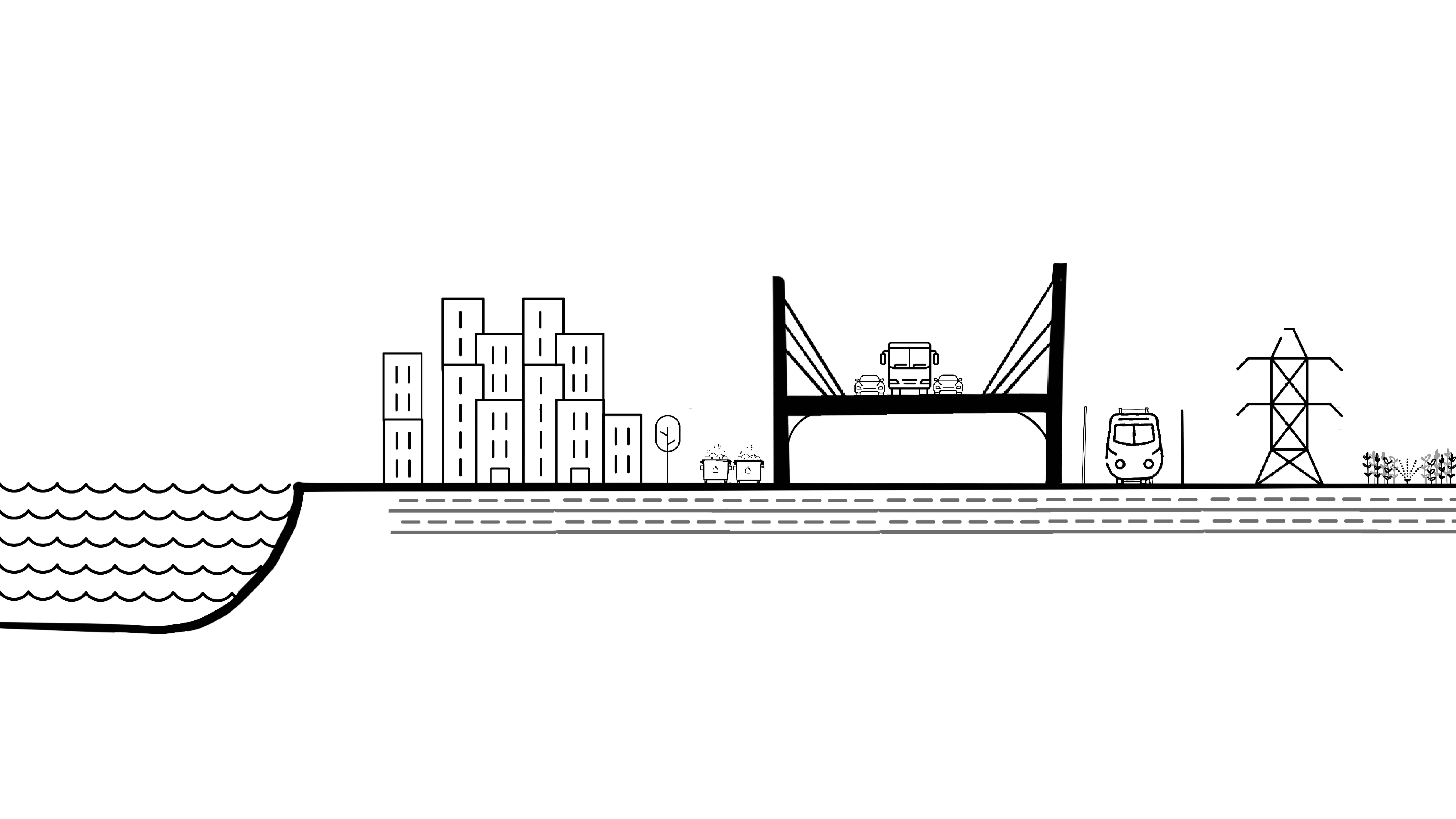Capacity Building through Urban Infrastructure Development (CBUID)
Description
The overarching programme “Capacity Building through Urban Infrastructure Development” (CBUID) accounts for EUR 22.5 million of project funding for the period March 2020-September 2024. At the CBUID output level, this assignment contributes to “Institutional Development for Climate-resilient and Socially-just Urban Development”. The aim hereby is to enable the Egyptian General Organization for Physical Planning (GOPP) (Ministry of Housing, Utilities, and Urban Communities (MoHUUC)) and the Urban Development Fund (UDF) through technical and institutional capacity development by technical training and the development of urban instruments to integrate climate resilience and social justice as key aspects into their operations (e.g., urban planning and urban upgrading), and to enhance the horizontal collaboration between GOPP, MoHUUC, UDF, and other governmental agencies and the vertical coordination with cities/districts and governorates in relation to climate resilience.
For the current assignment, the main goal is to develop and pilot a Climate Resilience Instrument at on-site, district, and city scale in collaboration with UDF and subsequently train UDF. This instrument is further informed by the Risk Reduction Instrument for GOPP at city, regional, and national scale through various consultations and is operationalised by a software consultant.
The instrument focuses on climate proofing & monitoring of urban upgrading projects through the identification of relevant climate adaptation/mitigation solutions, either as integral components of planned interventions or as stand-alone measures (inc. non-spatial measures such as social protection), as well as provide a clear step-by-step guide for their implementation and to strengthen community-centred resilience. The guidebook accommodates a smooth walkthrough towards a local resilience action plan (LRAP). In our vision, the LRAP
- summarizes the analysis of climate hazard impact;
- presents clear hard and soft solutions;
- pays attention to social and environmental aspects, and;
- contains an implementation plan for the measures.
Services
- Translation services (Bi-lingual deliverables (EN | AR))
Preparatory Phase
- Kick-off meetings/workshops and stakeholder engagement (inception interviews: UDF | Egyptian Environmental Affairs Agency (EEAA) of the Ministry of Environment (MoE) | UN-Habitat | UNDRR | NGOs (Greenish))
- Research Field Visit (desk research; stakeholder interviews; UDF project site visit Cairo; data collection workshops)
- Context Analysis (qualitative thematic, institutional & gap analysis (urban governance, climate change context & policies, institutional framework & stakeholder mapping)
- Stakeholder Engagement Plan
- Methodological Framework for the Adaptation Solutions Database and Urban Climate Resilience Guidebook Report (e.g. Dutch Delta Approach | Green Finance (incentive approach, project financing; operation modalities) | Land allocation methods | Alignment UDF workflow)
- Revised implementation plan
Research and Development Phase & Piloting Phase
- Research Field Visit (data collection/validation workshops; desk research; field visit UDF project site Alexandria)
- Urban Climate Resilience Guidebook (Development of tailored assessment tools | Climate Resilience Tool Gap Analysis (city resilience action planning (RAP); climate proofing toolkit | urban risk assessment | climate resilience compliance checklist | Resilience learning Module (Making Cities Resilient (MCR) 2030; Sendai Framework for Disaster Risk Reduction (SFDRR) | Principles of city climate action planning | City Resilience Profiling tool | Classification of Development Areas)
- Climate Adaptation (50-70) solutions database (desk research; adaptation and review of the adaptation solution framework; consultations with software consultant, including recommendations for iteration)
- Piloting Climate Resilience Instrument (Guidebook + Database) on selected site
- Local Resilience Action Plan (tailored to the pilot area)
Capacity Development Phase
- Capacity Development Plan (inc. training material)
- Capacity Development Implementation (training workshop with UDF on topics: Environmental Impact Assessment (EIA), Social Impact Assessment (SIA), Cost-Benefit Analysis (CBA), Climate Urban Resilience (system-thinking))
- Training Report (Training documentation, including results of pilot process)
Documentation and Reporting Phase
- Process Documentation & Recommendations (Final Report)
- Presentation/Validation Workshop to partners


